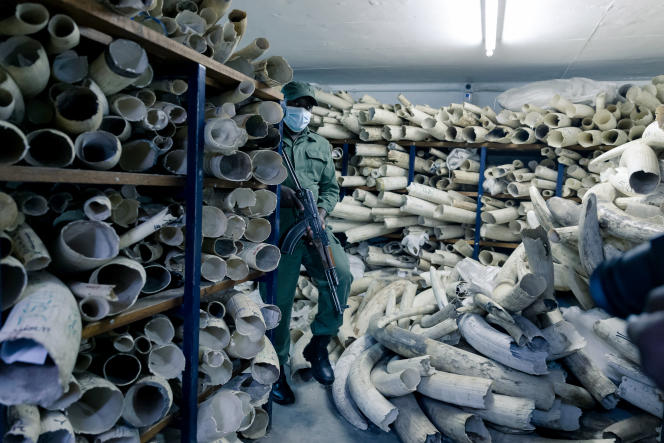Zimbabwe on Monday (May 16) asked for support from European countries for the sale, for a value of 600 million dollars, of its stock of ivory whose trade is prohibited. The Cites (Convention on International Trade in Endangered Species of Wild Fauna and Flora) has governed the prohibition of the global ivory trade since 1989.
Parks and Wildlife Authority chief executive Fulton Mangwanya told European ambassadors in Harare on Monday that his country had 163,000 tonnes of ivory and 67 tonnes of rhino horn in its reserves. He estimated the value of the ivory at some $600 million. “The burden of having to manage a stock from which we cannot derive economic benefit (…) is painful for us,” Mr Mangwanya said.
A quarter of Africa’s elephants
European diplomats were treated to a tour of the vaults where ivory is kept in Harare. Mr. Mangwanya assured that if the sale was allowed, its profits would go to local communities near the animal reserves.
With 100,000 specimens, Zimbabwe has the second largest elephant population in the world after Botswana, accounting for about a quarter of the elephants in Africa. The elephant population in Zimbabwe is increasing by 5% per year. But the country’s capacity does not exceed 55,000 elephants, according to country officials.
Sixty people have been killed since early 2022 by elephants in Zimbabwe. Zimbabwe’s request had not won support on Monday. “The conservation and prevention of illegal trade in wildlife species are international issues due to the involvement of criminal organizations,” Swiss Ambassador Niculin Jager said.
Three years ago, Botswana, Namibia and Zimbabwe demanded the right to sell their ivory acquired by natural death or confiscation, but their request was rejected by CITES in Geneva in 2019.

















